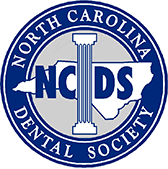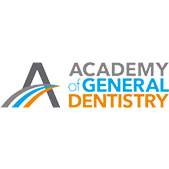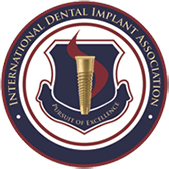
Expecting mothers go to great lengths to protect the well-being of their unborn children. During those nine critical months diets are carefully monitored, physical activity is kept to a minimum, and visits to the obstetrician become a regular fixture of life.
When it comes to pregnancy dental care, however, a mother’s desire to protect her baby can actually compromise the health of her and her child.
Rumors about the risks associated with having dental procedures performed during pregnancy have been floating around for years. Some pregnant women don’t go for fear of the radiation from dental X-rays. Some are worried about having local anesthetics administered during pregnancy. Others are hesitant to even undergo regular dental cleanings.
Now, new research is demonstrating that not only are these procedures safe, but that avoiding dental care during pregnancy is a far more risky prospect.
Importance of Dental Care During Pregnancy
Due to the hormonal changes that accompany pregnancy,many expecting mothers developperiodontal (gum) diseasewhile pregnant. In 2013, a study conducted by the American College of Obstetricians and Gynecologists’ committee On Health Care for Underserved Women estimated that40 percent of pregnant women in the United States suffer from cavities or gum disease. Other factors associated with pregnancy such asmorning sickness and increased carbohydrate consumption also leave pregnant women at a greater risk of developing tooth decay.
Periodontal disease is a bacterial infection of the mouth that causes gums to become sore and inflamed – never a good thing. During a pregnancy, however, periodontal disease can be especially worrisome. Bear in mind that the mouth is a very large gateway into the rest of the body.
Thebacteria from periodontal disease can quite easily travel through the body, and even be transferred between mother and fetus. Some studies have even linked periodontal diseasein mothers to pre-term, low weight births.
Whether or not periodontal disease can, in fact, cause birth complications,there is overwhelming evidence to suggest that thetreatments to prevent and treat periodontal disease are safe for pregnant women.
The Case for Safe Dental Treatment
In August of 2015, theJournal of American Dental Association(JADA) released the results of a study designed to assess the risks associated with dental treatment and anesthetics during pregnancy. The methodology of their study was fairly simple: compare the pregnancy outcomes of a group of women who did undergo dental treatment with anesthetics with a control group of women who opted not to have dental treatment.
The study found no measurable differencein outcomes between the two groups of women.
According to the author of the study, Aharon Hagai, DMD, “Our study identified no evidence to show that dental treatment with anesthetics is harmful during pregnancy.” He went on to say that, “[Pregnancy] is a crucial period of time in a woman’s life and maintaining oral health is directly related to good overall health. Dentists and physicians should encourage pregnant women to maintain their oral health by continuing to receive routine pregnancy dental care and seeking treatment when problems arise.”
In 2004, eleven years prior to the JADA study, theAmerican College of Obstetricians and Gynecologists (ACOG) advised that X-ray exposure from a single procedure does not result in harmful effects on a fetus. An article from earlier this yearpublished in Dentistry IQ breaks down the ACOG’s rationale in simple terms.
During the course of a pregnancy, the accepted cumulative dose of ionizing radiation is 5 rad. With a single dental X-ray emitting roughly 0.0001 rad, it would take about 50,000 of these procedures to reach 5 rad.
For abdominal X-rays, which clock in at about .25 rad, it would take 20 exposures to reach the maximum accepted dose. The article didnote that fetuses are most sensitive to this kind of radiation exposure between 10 and 17 weeks of gestation, so X-rays that aren’t urgent should be postponed until after this period.
Key Takeaways
All of this research points to one unanimous conclusion: regular dental care during pregnancy is safe for fetuses, and beneficial to the overall health of expecting mothers. These days, obstetricians and dentists alike encourage mothers to continue receiving necessary dental care. Undergoing regular dental cleanings can even reduce the risk of transmitting harmful bacteria between mothers and their unborn children.
Want to learn more about this or any other concerns you might have about your dental health orfamily dental care? Please feel free togive us a call to schedule a consultation with the devoted staff at Modern Family Dental Care in the Charlotte area. We look forward to hearing from you.





